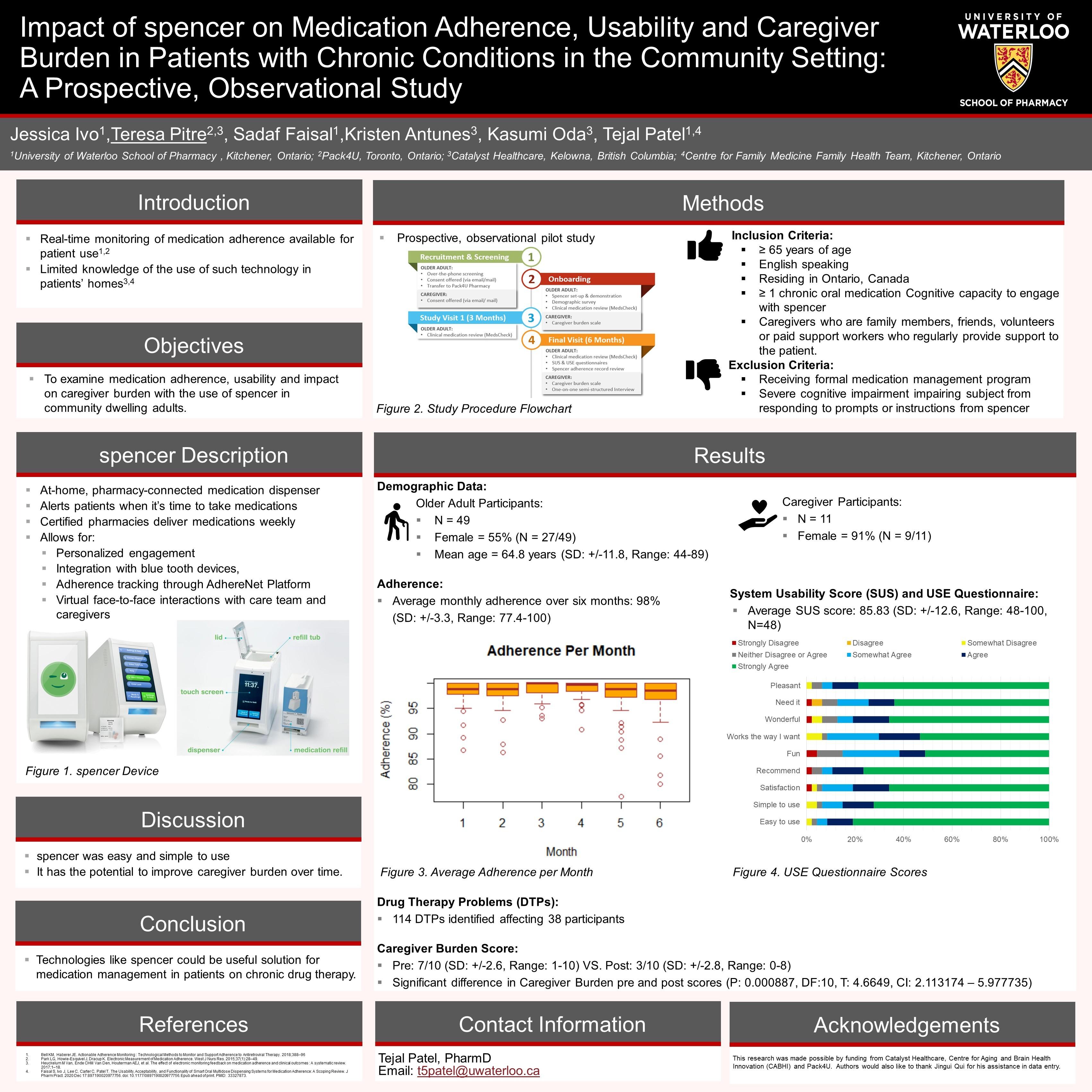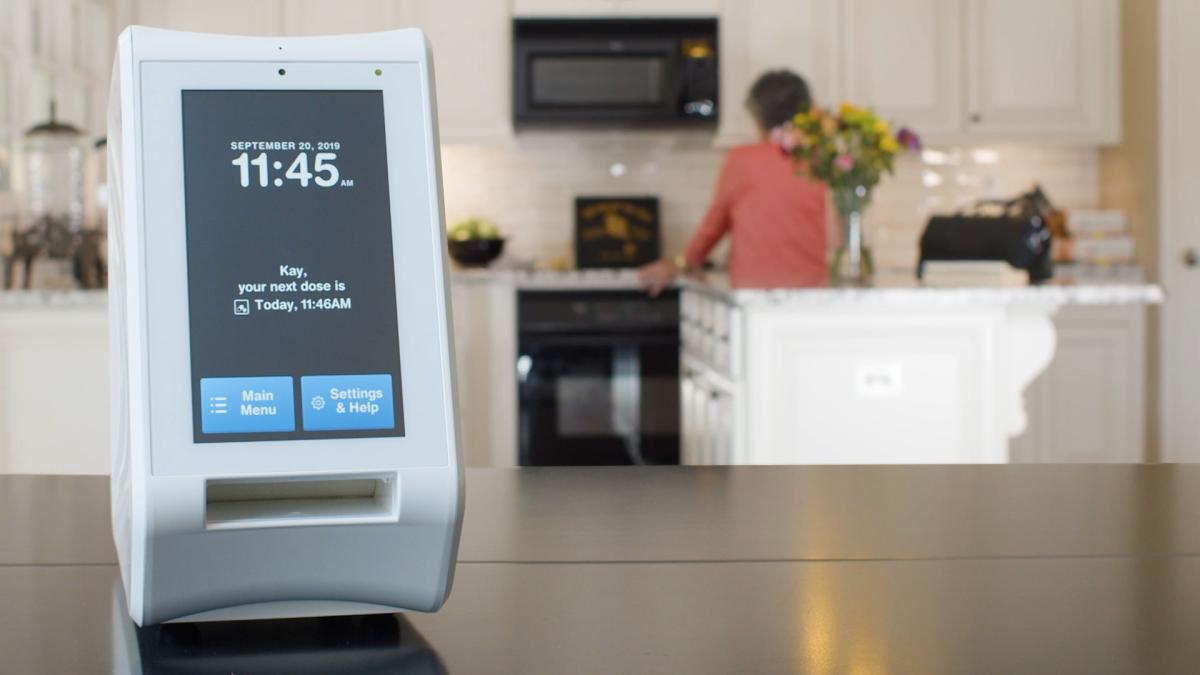Background
With funding from the Centre for Aging and Brain Health Innovation (CABHI) through its Industry Innovation Partnership Program (I2P2), researchers at the University of Waterloo conducted a prospective, observational study involving our connected in-home medication dispenser.
Challenge
Non-adherence to medications is a key contributor to potentially preventable healthcare utilization. Understanding the role of connected technology, particularly among the elderly, impacts funding and access.
65
Participants
Six
Month data collection
98%
Medication adherence
86%
System Usability Score
Solution
To closely measure the impact of connected technology on medication adherence, usability, and caregiver burden in Ontarians aged 65+ taking three or more medications for at least one chronic condition.
Participants enrolled and were introduced to a pharmacist for a personalized med review and health consult, provided with a spencer device, and weekly or bi-weekly home delivery of meds. When people use spencer, we can see whether or not they're taking their medication. Their pharmacy has a dashboard for real-time insight into patients adherence, and we see data across all users. When people take everything as prescribed, great! And for those who don't, we discuss potential reasons why with their pharmacist. Many times it's a simple tweak to better align with an individuals schedule, i.e. the first dose on Wednesday is at 8:30am instead of 7:30am. These small adjustments help people to achieve great adherence, which then gives us the opportunity to assess whether the medications are effective and to take action accordingly.
Results
Connected technologies like spencer could be a useful solution for medication management in patients on drug therapy for chronic conditions.
Tejal Patel, PharmD, Principal Investigator
Over the six month study period, average adherence was 98%, far above the 50% benchmark that is recognized by the World Health Organization as “adherent”. Not only was adherence high, but patients found spencer to be easy and simple to use - a few even reported it to be fun! This is great news as it means that people are more likely to stick with it, which is important to consider as our goal is to achieve and sustain high adherence over time. Furthermore, clinical pharmacists used real-time data to identify and address 1,114 medication related problems impacting 78% of participants.
And in addition to people taking their meds properly, something we constantly hear about is the impact of spencer for caregivers - from having meds organized and delivered, to knowing that they're being taken and that there are clinical pharmacists actively watching out for their loved one. We were very enthusiastic about the team at Waterloo measuring the impact in a formal way, and were thrilled with the results.
For caregivers, the study showed spencer has the potential to improve caregiver burden, otherwise known as the strain of caring for a patient over time. Caregivers often go above and beyond to care for their loved ones, so much so, that it can impact their own quality of life. With the assistance of spencer helping to administer and monitor meds, caregivers spend less time focusing on remembering to administer medications, allowing more time for themselves and other important tasks.
Read the full text as published in JMIR
Below is the poster presented at the Canadian Geriatrics Society Annual Scientific Meeting, May 26-28, 2021.


